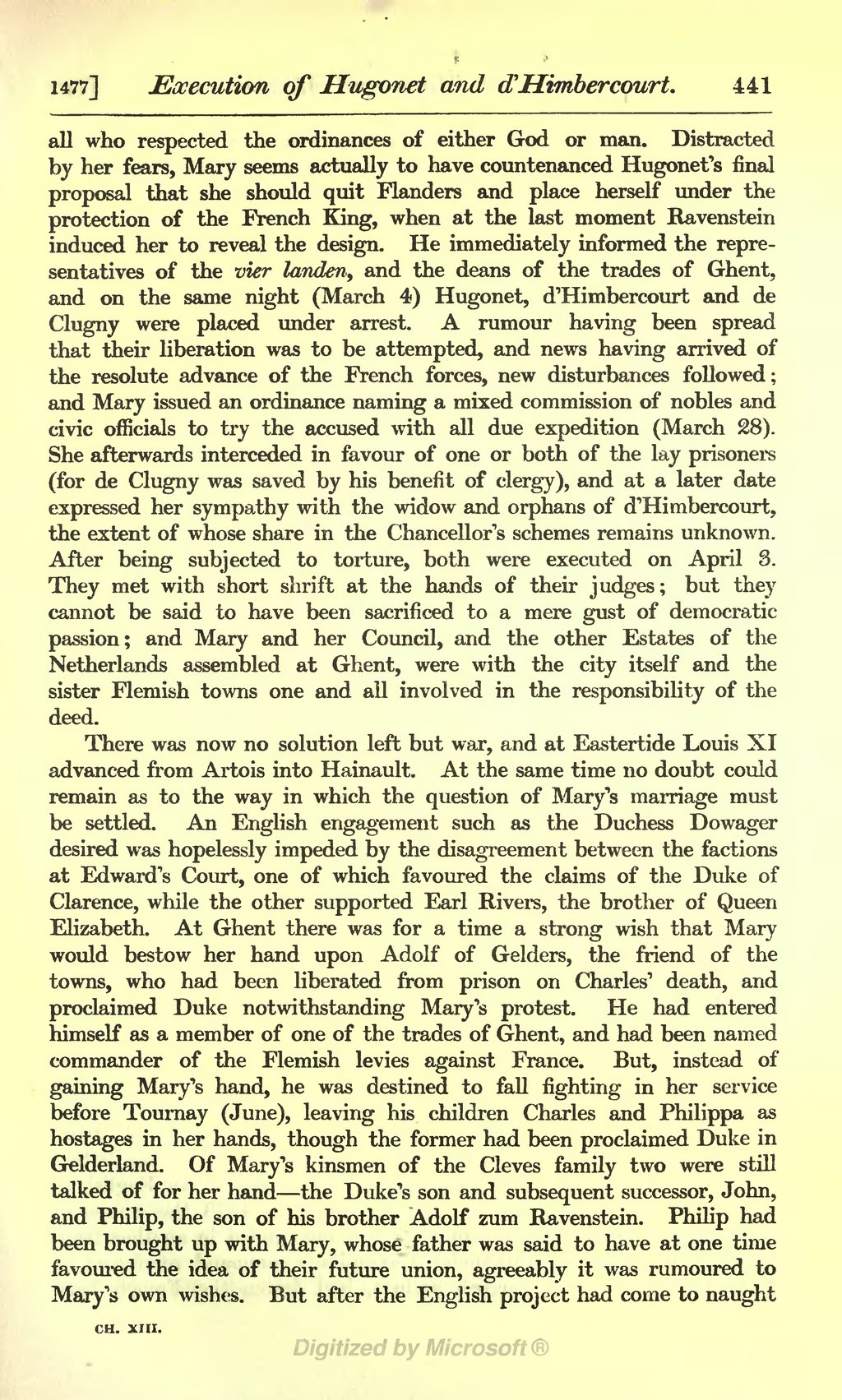all who respected the ordinances of either God or man. Distracted by her fears, Mary seems actually to have countenanced Hugonet's final proposal that she should quit Flanders and place herself under the protection of the French King, when at the last moment Ravenstein induced her to reveal the design. He immediately informed the representatives of the vier landen, and the deans of the trades of Ghent, and on the same night (March 4) Hugonet, d'Himbercourt and de Clugny were placed under arrest. A rumour having been spread that their liberation was to be attempted, and news having arrived of the resolute advance of the French forces, new disturbances followed; and Mary issued an ordinance naming a mixed commission of nobles and civic officials to try the accused with all due expedition (March 28). She afterwards interceded in favour of one or both of the lay prisoners (for de Clugny was saved by his benefit of clergy), and at a later date expressed her sympathy with the widow and orphans of d'Himbercourt, the extent of whose share in the Chancellor's schemes remains unknown. After being subjected to torture, both were executed on April 3. They met with short shrift at the hands of their judges; but they cannot be said to have been sacrificed to a mere gust of democratic passion; and Mary and her Council, and the other Estates of the Netherlands assembled at Ghent, were with the city itself and the sister Flemish towns one and all involved in the responsibility of the deed.
There was now no solution left but war, and at Eastertide Louis XI advanced from Artois into Hainault. At the same time no doubt could remain as to the way in which the question of Mary's marriage must be settled. An English engagement such as the Duchess Dowager desired was hopelessly impeded by the disagreement between the factions at Edward's Court, one of which favoured the claims of the Duke of Clarence, while the other supported Earl Rivers, the brother of Queen Elizabeth. At Ghent there was for a time a strong wish that Mary would bestow her hand upon Adolf of Gelders, the friend of the towns, who had been liberated from prison on Charles' death, and proclaimed Duke notwithstanding Mary's protest. He had entered himself as a member of one of the trades of Ghent, and had been named commander of the Flemish levies against France. But, instead of gaining Mary's hand, he was destined to fall fighting in her service before Tournay (June), leaving his children Charles and Philippa as hostages in her hands, though the former had been proclaimed Duke in Gelderland. Of Mary's kinsmen of the Cleves family two were still talked of for her hand-the Duke's son and subsequent successor, John, and Philip, the son of his brother Adolf zum Ravenstein. Philip had been brought up with Mary, whose father was said to have at one time favoured the idea of their future union, agreeably it was rumoured to Mary's own wishes. But after the English project had come to naught
